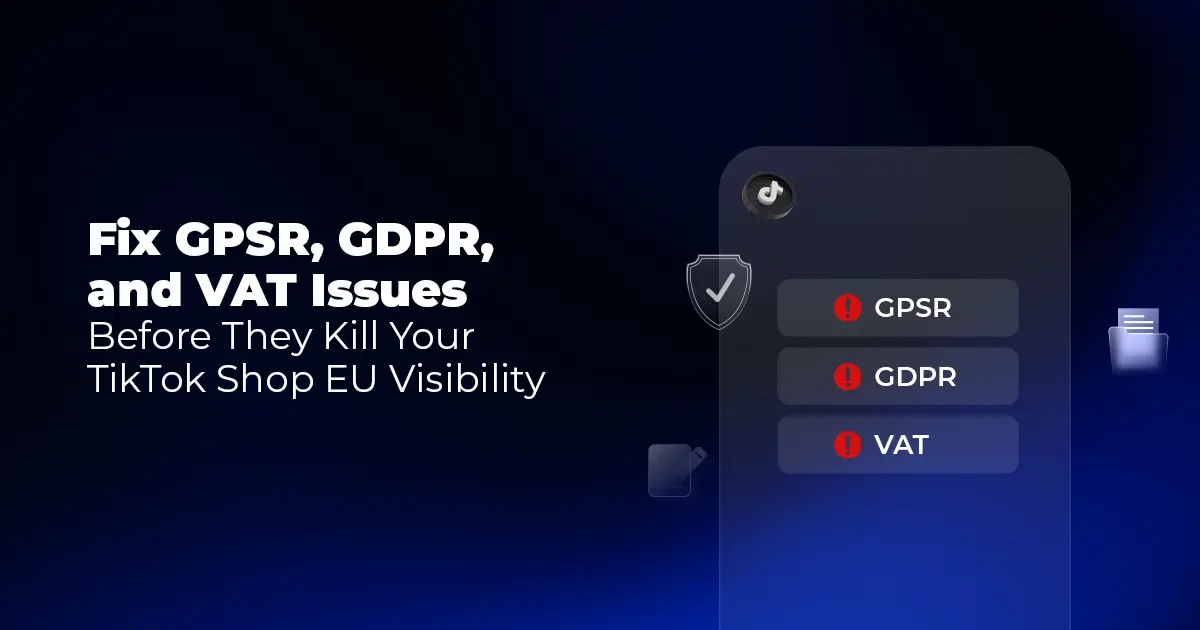BFCM Conversion Tactics: Smart Bundles, Flash Sales & Scarcity Marketing
Reading Time: 13 minutesStill approaching BFCM with generic discounts, last-minute price cuts, or scattered promotions?…
The world of eCommerce SEO is one where the right strategies can improve your eBay and Google rankings. They can easily make your products stand out like stars amidst millions of other listings. Mastering the techniques of eBay SEO such as eBay listing optimizing and identifying the most searched keywords on eBay can give you the best sales results in the long run.
In this blog we’re here to navigate you through eCommerce SEO best practices, and how to optimize eBay listings.
eCommerce SEO is important in enhancing the visibility of online stores in Google SERP. It is the driving factor in bringing in the traffic organically. Unlike traditional SEO, which focuses on general searches, eCommerce SEO is all about optimizing the details for product-related searches. It often incorporates strategies like eCommerce SEO audit to refine each listing.
A standout example of eCommerce SEO success is Nikon’s top ranking for “DSLR cameras” on Google. It is a testament to the impact of proficient SEO on sales and visibility.
The heart of eCommerce SEO lies in enhancing product and category pages. It’s different from regular SEO, which focuses more on content. Here, it’s about products and using the right keywords to define and explain them.
You can find these keywords through search suggestions, social media, and special tools. Using these keywords well in product and category pages, along with helpful blog posts, is the foundation of strong eCommerce SEO.
eBay’s search engine, Cassini, looks for listings that are relevant, valuable, trustworthy, and convenient. Sellers should use the right keywords and provide complete details to improve their eBay rankings.
Using long-tail and Latent Semantic Indexing (LSI) keywords is important. Correctly categorizing products and using eBay’s identifiers also helps make your products more visible on eBay and other search engines.
Customer reviews are very influential in eCommerce SEO. About 70% of shoppers read reviews before buying. Reviews also often include useful keywords that help with search rankings. As digital storefronts, eCommerce brands should value reviews for sales and SEO.
Reviews also add to a site’s Expertise, Authoritativeness, and Trustworthiness (E-A-T). Google ranks sites with high E-A-T better. So, getting positive customer reviews is vital for SEO and for building a trusted brand.
Meta descriptions are crucial for getting clicks. They might not directly affect rankings, but they influence whether someone visits your site. Writing an engaging brief within 150-160 characters is important to catch user interest.
For eCommerce, using language that your audience understands is key. Your meta descriptions should connect with potential buyers and include special selling points or emotional triggers.
Understanding eBay’s Cassini search engine is important for listing optimization. Cassini looks for listings that will likely lead to quick sales. Good eBay SEO means making listings that meet these criteria and appeal to your audience.
Effective keyword use, correct categorization, and using eBay’s unique identifiers are important for being more visible. Sellers should focus on creating listings that are both relevant and appealing.
Effective keyword research using tools like Ubersuggest and Moz Keyword Explorer is vital. Incorporate these high-traffic, relevant keywords, especially those with purchase intent, across your website, including in meta titles, H1 headlines, meta descriptions, blog posts, and product or collection page descriptions.
Choosing the right keywords, especially long-tail ones, can really help your product get noticed on eBay. Sellers should pick terms that reflect their target audience’s interests and search habits.
Using seasonal keywords in eBay listings helps tap into increased searches during busy shopping times. This means updating listings with relevant seasonal keywords to match changing search trends and customer interests.
This approach helps sellers take advantage of more searches during specific times of the year. It requires keeping up with market trends and adjusting listings accordingly.
Invest in building backlinks and internal links. Develop compelling blog content that attracts external links while using internal linking within your site to improve page rankings. Focus on creating informative blog posts that other brands might link to, thereby enhancing your site’s credibility and Google ranking.
Prioritize ranking collection pages over individual product pages as Google tends to favor these. Collection pages, showcasing categories of products, are easier to optimize and likely to achieve higher rankings.
To optimize for eBay’s Cassini, you need to know its ranking factors. Cassini looks for listings that are likely to sell quickly. Sellers should make their listings match these standards to attract and convert customers.
Cassini’s focus on quick sales means eBay SEO isn’t just about keywords. It’s about meeting buyer expectations. This needs a thoughtful approach, considering everything from titles and descriptions to categorization and pricing.
Good eBay SEO content is more than just great product descriptions. It includes the whole user experience. Using high-quality images, correct categorization, and eBay’s identifiers are part of creating content that boosts eBay SEO.
Creating content that connects with your audience and meets eBay’s SEO criteria needs deep understanding. This involves optimizing technical aspects and creating an engaging story around your products.
To avoid eBay SEO mistakes, sellers need to focus on more than keywords. Optimizing images, following eBay’s image rules, and using diverse, high-quality photos are key. Also, excellent customer service and competitive shipping options help improve eBay’s SERP rankings.
Avoiding these mistakes requires a complete approach to eBay SEO. This ensures listings are not just visible but also appealing and trustworthy.
Improving eBay’s SEO performance means regularly checking key metrics like click-through and conversion rates. Using eBay’s analytics tools and adjusting strategies based on insights is vital for ongoing success.
Continuous review and adaptation are necessary in the fast-changing world of eCommerce SEO. Sellers should keep up with the latest trends and eBay algorithm changes, adjusting their strategies to stay visible and successful.
In conclusion, good eCommerce SEO, especially for eBay, needs a strategic and adaptable approach. From great meta descriptions to optimizing for eBay’s Cassini and using customer reviews, each part is crucial for better rankings and visibility.
As digital markets evolve, sellers should stay informed and flexible in their SEO strategies for success.

Reading Time: 13 minutesStill approaching BFCM with generic discounts, last-minute price cuts, or scattered promotions?…

Reading Time: 3 minutesTikTok Shop reached a major milestone during its largest U.S. “Global Black…

Reading Time: 3 minutesOpenAI has announced a new AI-powered shopping research tool designed to help…

Reading Time: 9 minutesIf your TikTok Shop listings often sit in review or your visibility…

Reading Time: 3 minutesAmazon has rolled out a new “Seller Challenge” feature for eligible Account…

Reading Time: 3 minutesWalmart Marketplace has sharpened its requirements around product classification (category, type group,…

Reading Time: 3 minutesJust ahead of Black Friday, Amazon is enforcing tighter controls on its…

Reading Time: 11 minutesWhere holiday prep of past years focused on legacy channels like Amazon,…

Reading Time: 11 minutesThe eCommerce shift you actually need to act on Multi-channel fulfillment has…

Reading Time: 10 minutesBlack Friday Cyber Monday (BFCM) isn’t a weekend anymore; it’s a two-month…

Reading Time: 2 minuteseBay is quietly testing a new feature that could reshape how buyers…

Reading Time: 2 minutesAmazon is stepping into a new era of value commerce with the…

Reading Time: 11 minutesThe $240 Billion BFCM Opportunity & Why Operations Matter Every seller, business,…

Reading Time: 7 minutesTL;DR — Your 60-Second BFCM Battle Plan Time remaining: 3 weeks until…

Reading Time: 2 minutesChina’s Double 11 shopping festival — the world’s largest annual online retail…

Reading Time: 2 minutesAs the holiday season approaches, TikTok Shop has released its September 2025…

Reading Time: 3 minutesIn a continued effort to enable sellers and stimulate new product launches…

Reading Time: 2 minutesAs global trade enters a new phase of regulation and cost restructuring,…

Reading Time: 2 minutesOpenAI Turns to Amazon Web Services in $38 Billion Cloud Deal: What…

Reading Time: 4 minutesAbout the Client TMRG is a global health and wellness brand with…